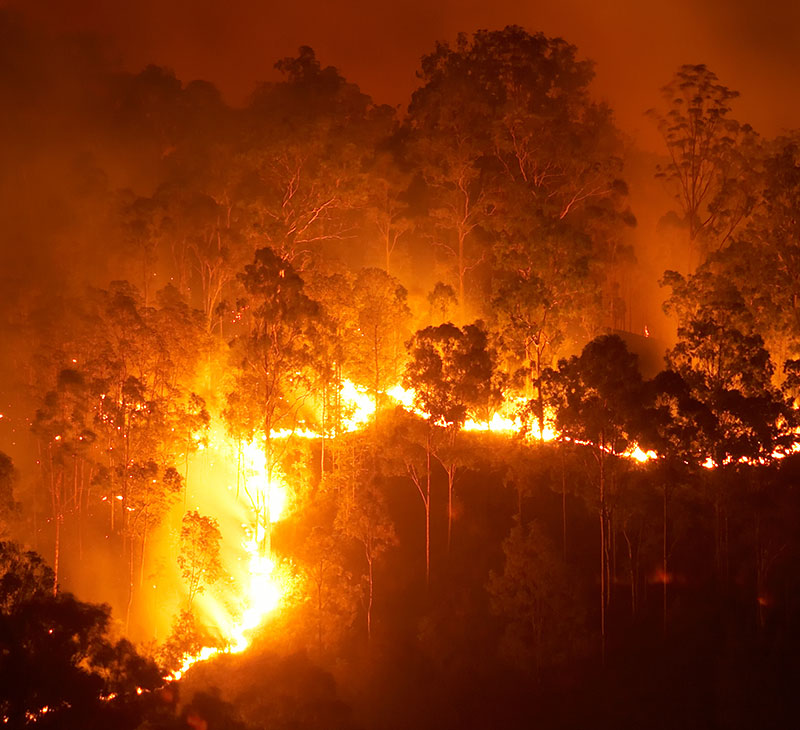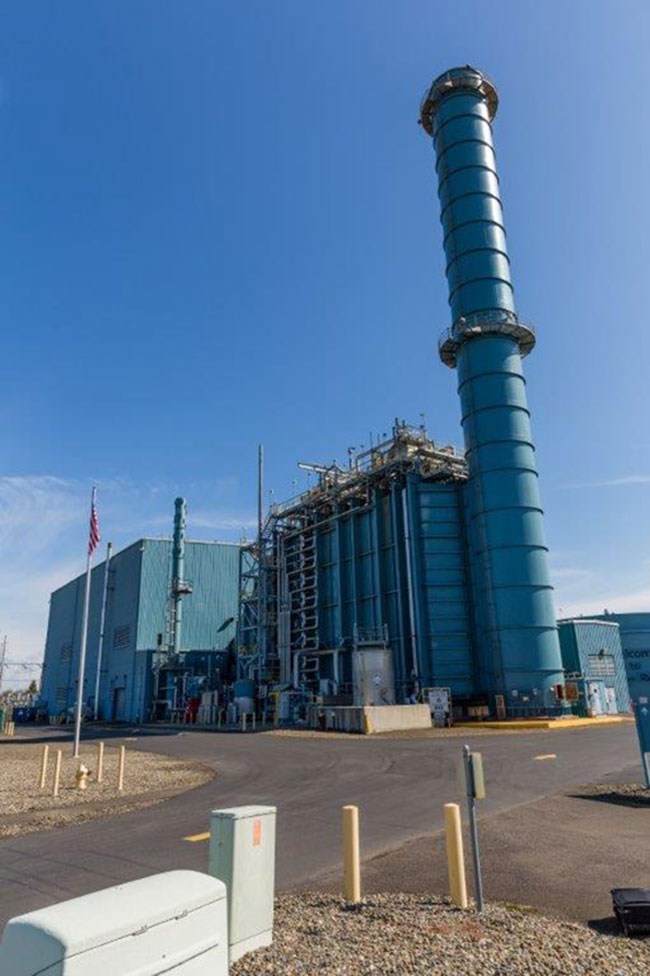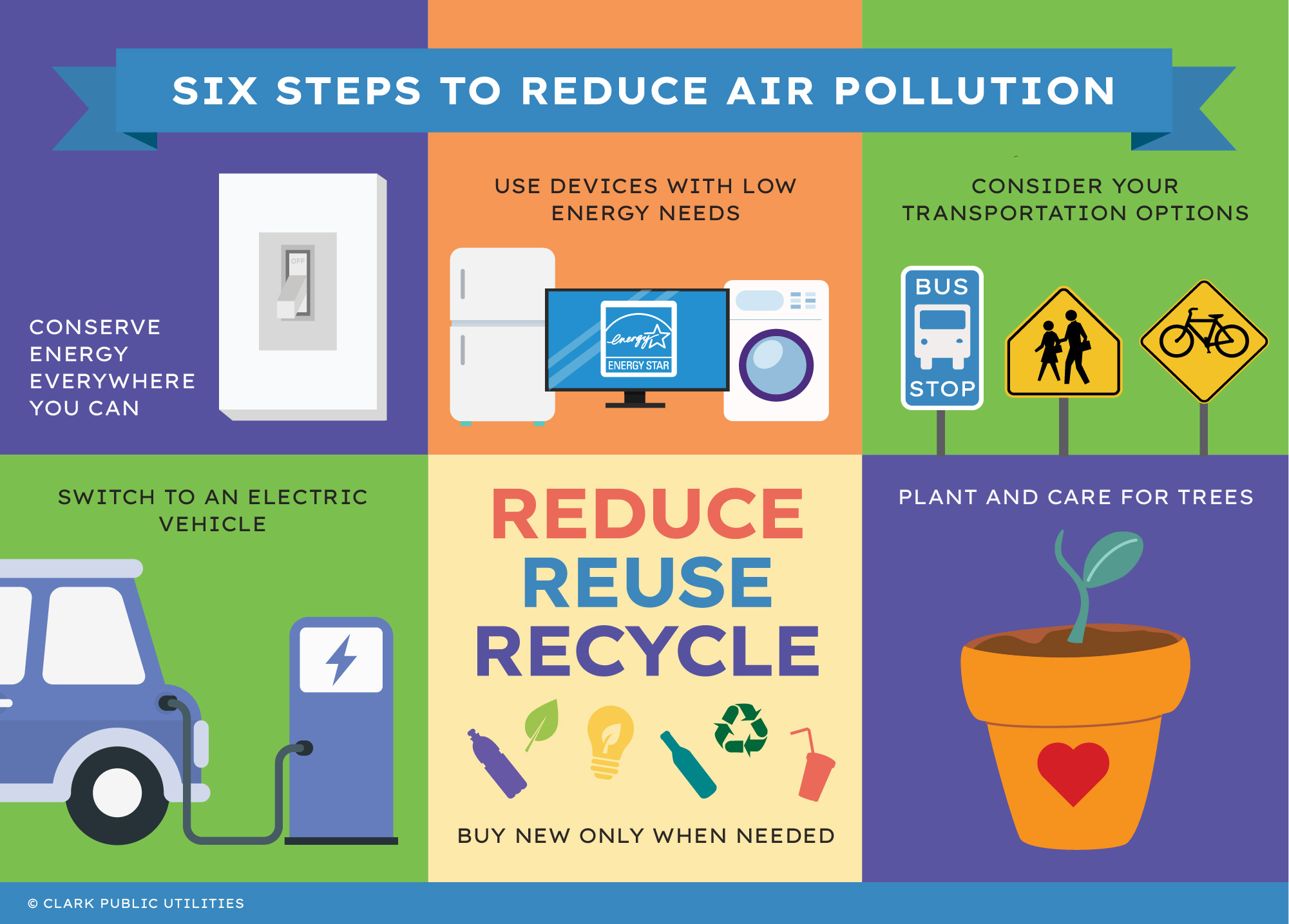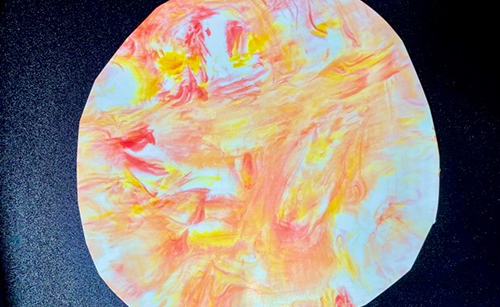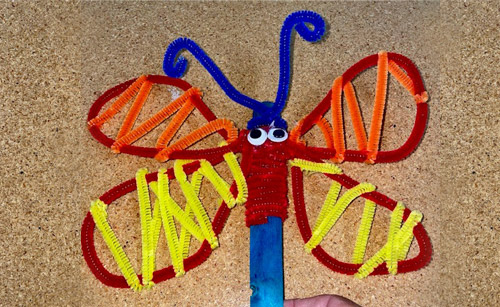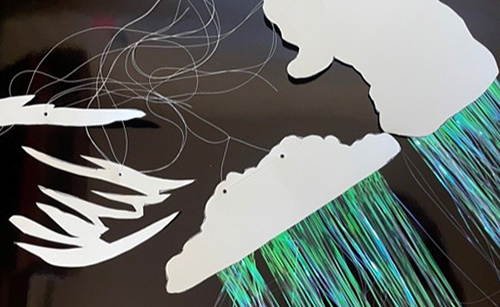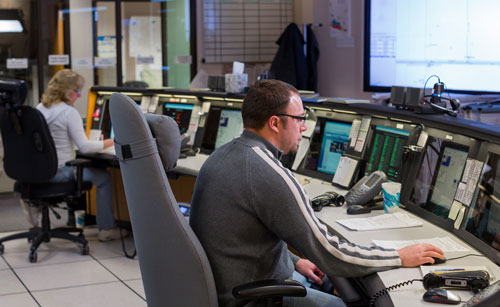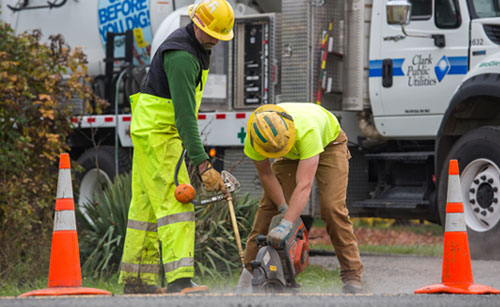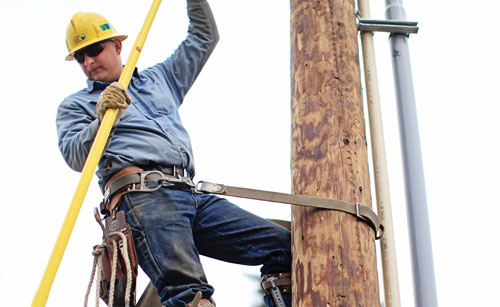Air quality in Clark County
The air that we breathe affects every system and function of our bodies, and wildlife too. Thanks to the Clean Air Act and other efforts, progress is being made to limit harmful air pollution, but there’s still a lot of work to do. Utilities, businesses, and schools are all working to improve air quality, and you can take steps in your day-to-day activities to help make a difference.
Forest fires and air quality
Here in Clark County, Washington, forest fires affect our air quality nearly every year. When the sky turns hazy, the air quality gets bad. If it’s bad enough, it can prevent us from safely enjoying the outdoors.
Why is forest fire smoke unhealthy? It contains a mix of volatile chemicals, particles, and carbon monoxide. The exact mix depends on what is burning. Smoke isn’t just from burned up trees – it’s a toxic mix of everything that has burned, including building materials, plastics, and chemicals.
The most dangerous part of smoke is particulates, or tiny specs of materials that can enter our lungs and bloodstream when we breathe them in.
Some groups of people, like kids, older people, and those with certain medical conditions, are more sensitive to wildfire smoke. But everyone can experience negative effects, including headaches, burning eyes, coughing, and a sore throat. And the long-term effects of wildfire smoke exposure are still not fully known.
Energy impacts our air - fossil fuels vs. renewables
Most of the electricity we use in Clark County comes from clean hydropower. But part of it also comes from the River Road Generating Plant.
The River Road Generating Plant uses natural gas — a fossil fuel — to generate electricity. Although it’s a clean plant, you will learn how much work it takes to keep it that way! That’s one reason we love renewable energy at Clark Public Utilities. It’s a clean, efficient way to supplement energy generation.
Clark Public Utilities’ River Road Generating Plant
Clark Public Utilities River Road Generating Plant (RRGP) was built to supplement the power we receive from the federal hydropower system. The RRGP burns natural gas at a very high temperature, converting the gas into thermal energy. The process of turning gas into heat rotates the first turbine making electricity. The thermal energy then moves the second turbine making even more electricity. The result is a very efficient generation process, but a byproduct of burning any fossil fuel is nitrogen oxide (NOx) and carbon monoxide (CO).
To help keep these harmful gases out of the air, Clark Public Utilities uses several systems at RRGP to remove pollution and works directly with the Federal Environmental Protection Agency (EPA) and the Southwest Clean Air Agency (SWCAA), to make sure we’re meeting all requirements to keep the air clean.
Whenever the plant is running (and it’s turned off whenever it costs less to use other energy, like extra hydropower!) samples are collected every minute of the day and night to measure the levels of emissions. Every three months, the EPA and SWCAA review all of the data to make sure we follow the rules to protect the air in Clark County.
Effects of poor air quality on the environment
The environment isn’t immune to issues from polluted air. Animals, plants, and the environment are all negatively affected. For example:
- Wildlife can also experience respiratory damage and neurological problems.
- Crops and other plants grow less in polluted air because high levels of particulates in the sky reduce the amount of sunlight available for plants to capture and photosynthesize.
- Air pollution can lead to acid rain, which increases soil acidity and damages plant leaves.
Actions you can take to reduce air pollution
There are simple steps you can take in your everyday life to help improve air quality. Every time you run an errand, use air conditioning or take out the garbage, you can make choices that can reduce air pollution.
Here are some tips to reduce pollution:
- Conserve energy – at home, at work, at school, everywhere
- Look for electronics and appliances that use less energy
- Carpool, use public transportation, bike, or walk whenever possible
- Switch an electric vehicle
- Reduce, recycle and reuse
- Plant and care for trees
- Become a champion for clean air

Did you know that plants actually breathe? It’s true! Tiny pores on their leaves, called stomata, take in atmospheric oxygen and exude carbon dioxide. Plants can close their stomata to protect themselves from pollution, but repeated exposure with damage the stomata preventing them from closing.

